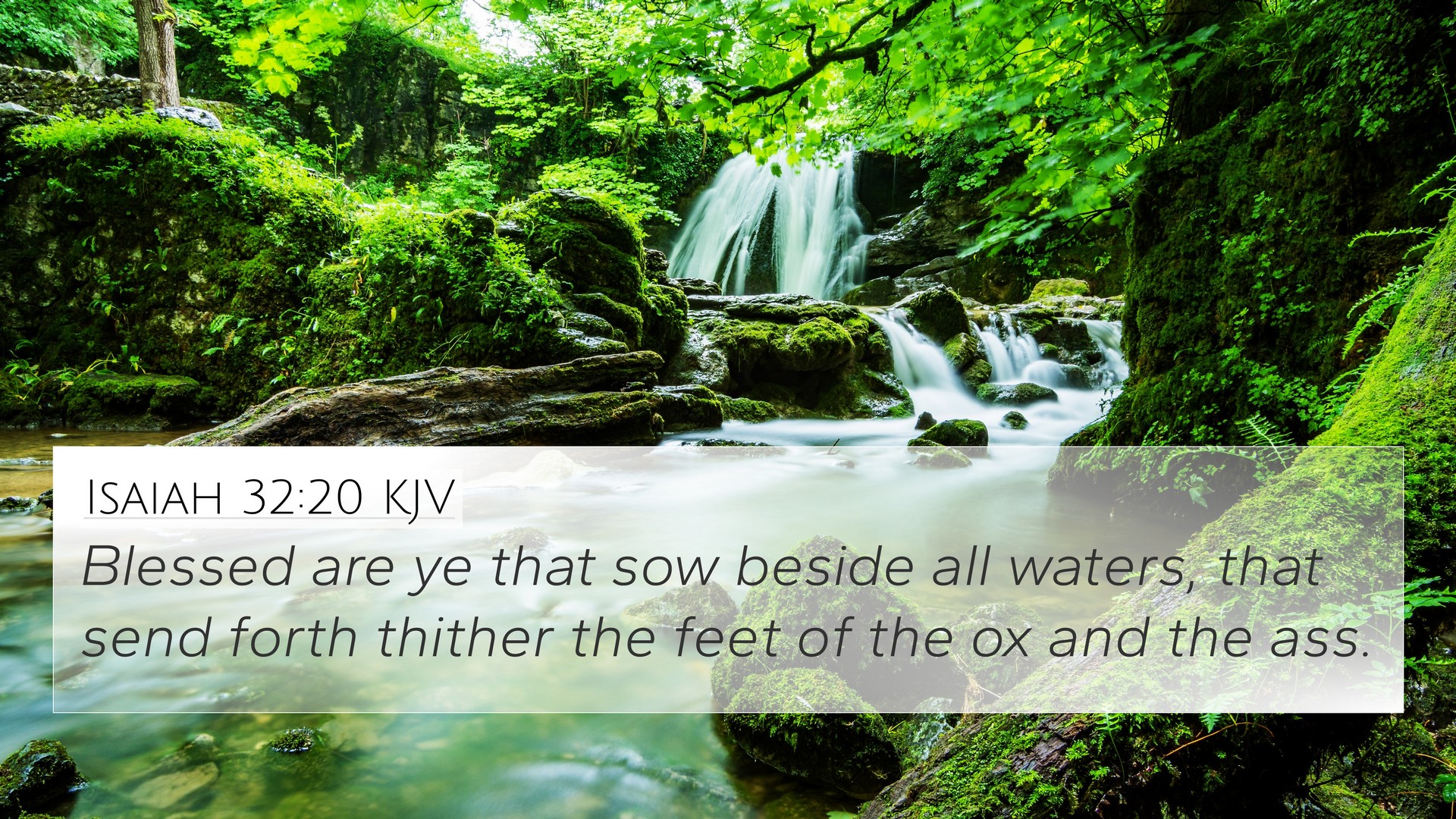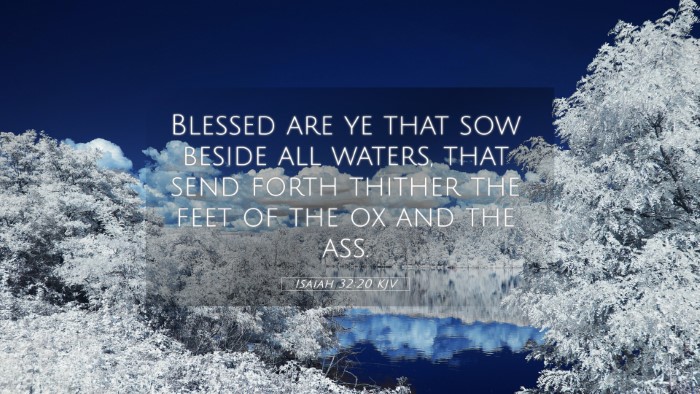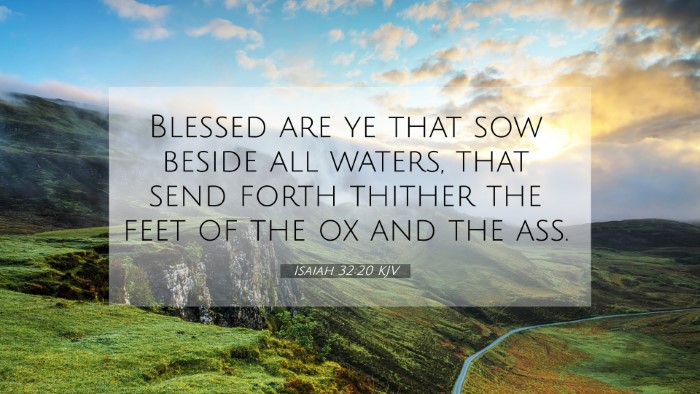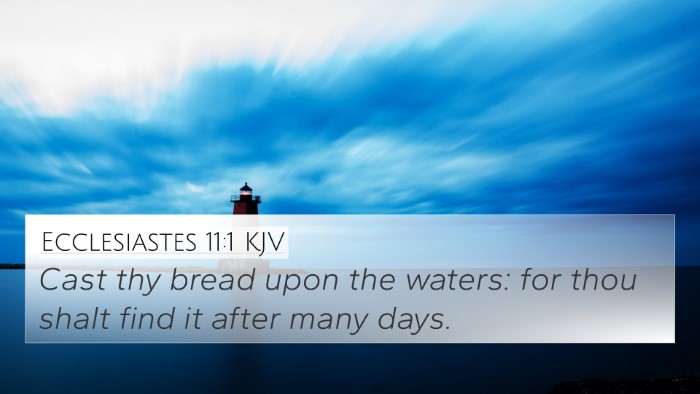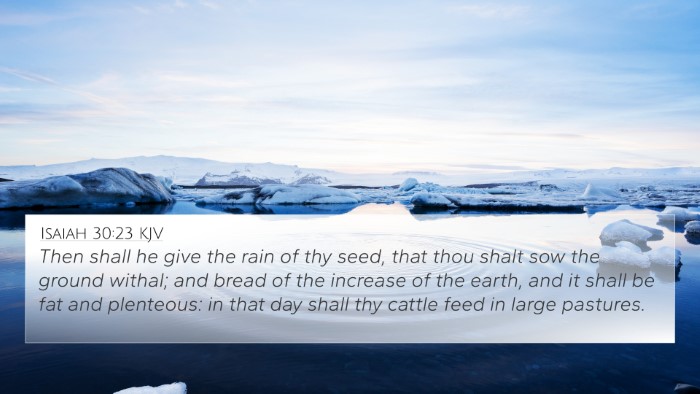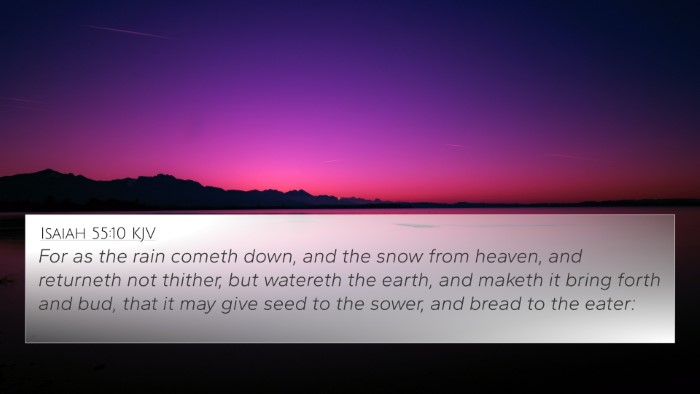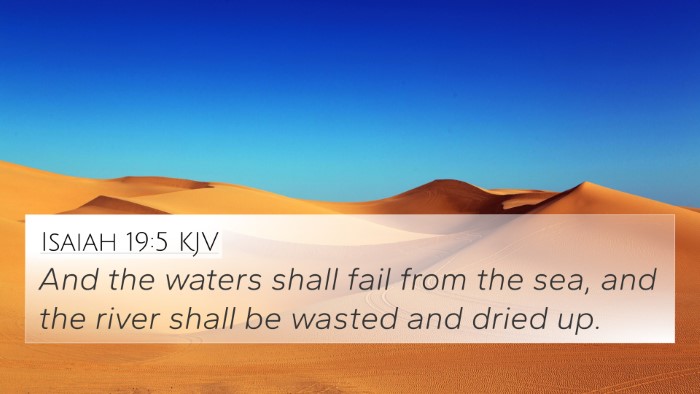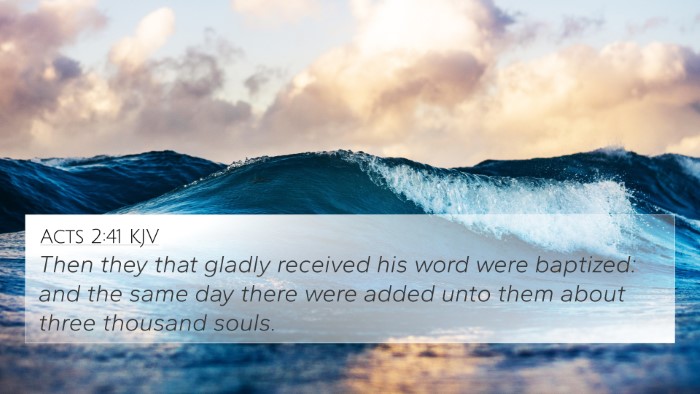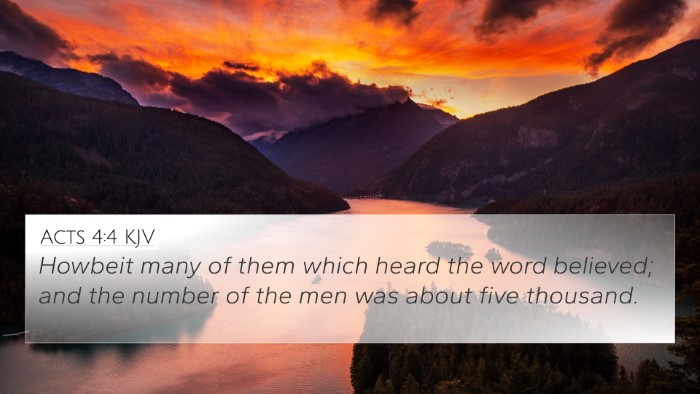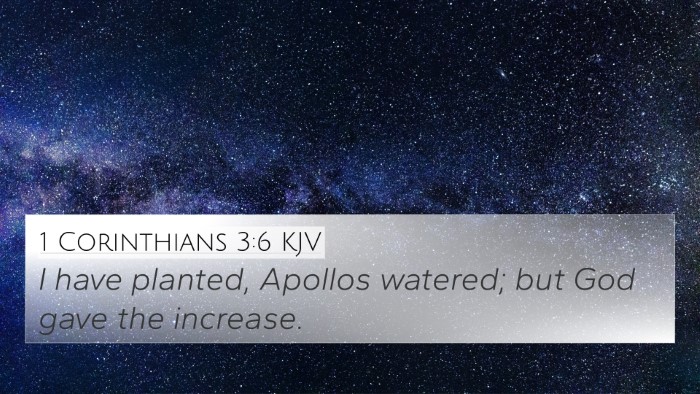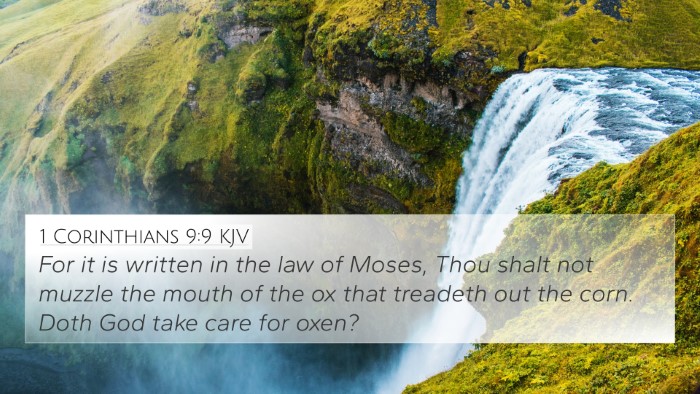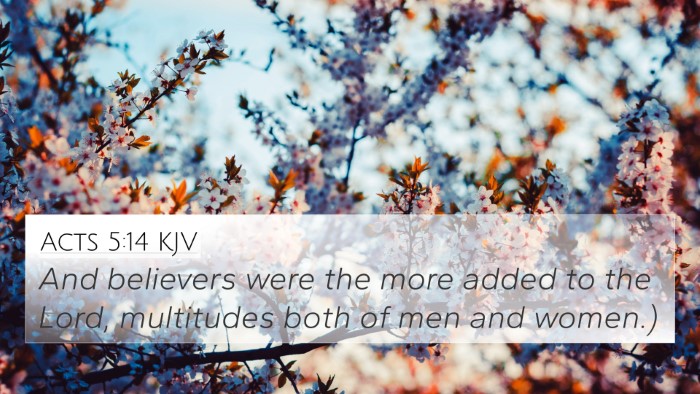Understanding Isaiah 32:20
Isaiah 32:20 states: "Blessed are you who sow beside all waters, who send out freely the feet of the ox and the donkey." In this verse, the prophet Isaiah emphasizes a profound spiritual principle relevant to both the Old and New Testaments, highlighting themes of divine blessing and spiritual prosperity.
Verse Meaning and Interpretation
This verse can be understood in multiple layers, drawing insights from various public domain commentaries.
Matthew Henry's Commentary Insights
Matthew Henry highlights that sowing beside all waters symbolizes a generous and abundant spirit. Those who give freely and without reservation will receive blessings, not just in material terms but also spiritually. The imagery of the ox and donkey signifies labor and stewardship, suggesting that diligent work in God's service is rewarded.
Albert Barnes' Commentary Insights
Albert Barnes emphasizes the idea of blessings associated with agricultural prosperity. He interprets the act of sowing beside waters as a diligent preparation for an abundant harvest. This metaphor captures the prosperity that comes from not only relying on the mere surface of the ground but also on ample resources. The feet of the ox and donkey suggest hard work providing the tools necessary for reaping this divine blessing.
Adam Clarke's Commentary Insights
Adam Clarke notes that the metaphorical language used in this verse points to the blessings that accompany those who are proactive in their endeavors. By sending out the “feet of the ox and donkey,” Clarke implies that effort and initiative are crucial in receiving God's blessings. Those who take the risk of sowing in faith, even in seemingly less productive areas, will be rewarded.
Cross-References and Thematic Connections
Isaiah 32:20 is connected to various biblical themes and verses that reinforce the principles of sowing and reaping, divine blessing, and faithfulness:
- 2 Corinthians 9:6-7 - Discusses the concept that he who sows bountifully will also reap bountifully.
- Galatians 6:7-9 - Speaks of reaping what one sows, emphasizing the importance of perseverance in doing good.
- Proverbs 11:24-25 - Highlights that there is one who scatters, yet increases more; generous giving leads to blessings.
- Psalms 126:5-6 - Expresses that those who sow in tears will reap in joy, illustrating the rewards of faithful labor.
- Matthew 5:7 - The beatitude, “Blessed are the merciful, for they shall obtain mercy,” correlates the concept of receiving blessings with one’s actions.
- Luke 6:38 - Teaches about the reciprocal nature of giving and blessing, connecting well with the themes in Isaiah.
- James 5:7 - Encourages patience for the harvest, resonating with the understanding that not all is immediate but requires faith and time.
- John 4:35-38 - Jesus speaks about the fields being ready for harvest, highlighting the connection between work, sowing, and harvesting.
- Ecclesiastes 11:1-6 - Talks about casting your bread upon the waters, as a metaphor for investment in faith with the expectation of a reward.
- 1 Corinthians 3:6-8 - Paul discusses the importance of working for God's kingdom, where each laborer will receive their due according to their labor.
The Benefits of Cross-Referencing Bible Verses
Utilizing a cross-reference Bible study guide allows you to uncover the intricate connections underlying biblical texts.
By exploring tools for Bible cross-referencing, scholars and laypersons alike can achieve a deeper understanding of scriptural themes, helping to illuminate complex ideas through comparative Bible verse analysis.
The ability to draw thematic Bible verse connections can enrich your personal study or increase the depth of sermons through Bible cross-references for sermon preparation. These relationships between verses lead to a greater understanding of God's overarching plan throughout both Testaments.
Practical Steps for Cross-Referencing
If you're interested in how to find cross-references in the Bible, consider the following methods:
- Use a Bible concordance that provides direct links to related verses.
- Engage in a cross-reference Bible study to unlock connections across different books.
- Look for inter-Biblical dialogue, especially between the Old and New Testaments, to find parallels and supporting themes.
- Note the significance of different translations, as they may shed new light on the verse in question.
- Participate in Bible study groups focused on comprehensive Bible cross-reference materials for communal learning.
Conclusion
Isaiah 32:20 serves as a powerful reminder of the divine principles of sowing and reaping, enriched by insights from public domain commentaries. By embracing the practice of cross-referencing, we discover a deeper relationship among biblical texts, illuminating God's messages across generations. In this exploration, we are invited to engage in scriptural cross-referencing, fostering a holistic understanding of faith and practice in our lives.
